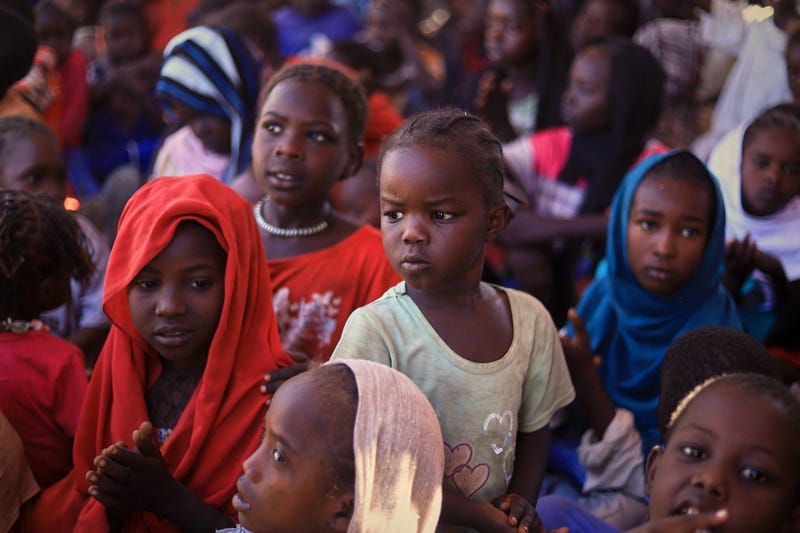
CAIRO (AP) — The Rapid Support Forces, a paramilitary group that has been at war with the Sudanese military for over two years, said Thursday it has agreed to a humanitarian truce proposed by a U.S.-led mediator group known as the Quad.
The agreement to the proposal comes more than a week after the RSF seized el-Fasher city which had been under siege for over 18 months. It was also the last Sudanese military stronghold in Sudan’s western Darfur region.
“The Rapid Support Forces looks forward to implementing the agreement and immediately commencing discussions on arrangements for a cessation of hostilities and the fundamental principles guiding the political process in Sudan, in a manner that addresses the root causes of the conflicts, ending the suffering of the Sudanese people,” an RSF statement read.
A Sudan military official told The Associated Press the army welcomes the Quad's proposal but will only agree to a truce when the RSF completely withdraws from civilian areas and give up weapons per previous peace proposals. The official spoke on the condition of anonymity to freely discuss the matter.
The war between the RSF and the military began in 2023, when tensions erupted between the two former allies that were meant to oversee a democratic transition after a 2019 uprising. The fighting has killed at least 40,000 people, according to the WHO, and displaced 12 million. However, aid groups say the true death toll could be many times higher. Over 24 million people are also facing acute food insecurity, according to the World Food Program.
Massad Boulos, a U.S. adviser for African affairs, said the U.S. was working with the Sudanese army and RSF to bring about a humanitarian truce and could have an announcement “soon.”
“We were working on this for the last almost 10 days with both sides, hoping to finalize the details,” Boulos told the AP in an interview on Monday. The U.S.-led plan would start with a three-month humanitarian truce followed by a nine-month political process, he said.
The U.S. has been working with Saudi Arabia, Egypt and the United Arab Emirates — the Quad — on ways to end the war.
El-Fasher, the capital city of North Darfur, is one of two regions hit by famine, the Integrated Food Security Phase Classification, a global hunger monitoring group, said Monday. The other is the town of Kadugli in South Kordofan province.
“We have to confirm that the main reason behind this famine is that it’s man-made. We’re not talking about natural disasters because there is ongoing conflict, insecurity, the inability to access food, and the lack of humanitarian corridors that ensures people in much need obtain food,” said AbdulHakim Elwaer, regional representative for Near East and North Africa.
Elwaer told The Associated Press on Thursday during a video call that there were talks for almost two years about making it easier for aid to reach communities in need through opening safe humanitarian corridors.
“I’m optimistic that by the end of the year we’ll reach a solution and there has to be a solution because we can’t allow millions of people to die of hunger because aid is not reaching them,” he said.
The nonprofit Islamic Relief warned in a statement Thursday that community kitchens that provide a lifeline to many families are at risk of collapse. A new survey by the group found that 83% of families in east and west Sudan are now without enough food.
Humanitarian organizations have long labeled Sudan as having one of the most alarming displacement crises in the world. Most recently, more people were displaced after el-Fasher was overtaken by the RSF following a series of attacks by the group that ran rampant in the city.
An influx of displaced people recently fled el-Fasher to arrive at Al-Affad displacement camp in the town of Al-Dabbah in the Northern State, which is some 350 kilometers from the capital Khartoum.
Several people who spoke to the AP this week recounted harrowing details of their escape from el-Fasher. Othman Mohamed, a teacher who fled the city at the end of September, said he saw bodies scattered along the road and people collapsing from exhaustion and abuse during the journey.
He said he had lived in a crisis in el-Fasher where drones and artillery were used and food was barely available. People often survived on Ombaz until it was hard to obtain. Ombaz is what is left from pressing peanut oil.
“In el-Fasher there’s nothing but beating and killing using drones in the sky that you can’t see but it hits you. The drone strikes you without you feeling it,” said Rawda Mohamed, who spent hours walking to Al-Affad camp.
Mathilde Vu, an advocacy manager with the Norwegian Refugee Council, NRC, said in a briefing Thursday that people in el-Fasher have been surviving on animal food and rain water. They have often been shelled and sheltered in holes they dug in the ground for safety. Those who tried to flee were attacked, she added.
People made "the journey on foot for several days, through extreme thirst, hunger, and violence, with some of them picked up in trucks only for the final stretch. Hundreds of people had to immediately be referred for medical attention due to their health condition. Some people at the reception center were simply too dehydrated to talk,” she said of those arriving in Tawila.